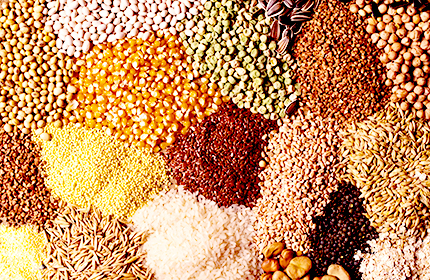Workshop on the Safety Assessment of Food Derived from Genetically Engineered Plants
-

September 15, 2014-September 19, 2014
9:00 am - 6:00 pmNew Delhi, India
The Agriculture & Food Systems Institute collaborated with DuPont Pioneer, Biotech Consortium India Limited and Estel Consult Ltd. to create a two phased workshop focused on the safety assessment of foods derived from genetically engineered plants. Phase I was held in New Delhi, India from May 19-23. Phase II was held at DuPont’s Stine Haskell Research Center in Newark, Delaware, USA from September 15-19.
These workshops were part of a strategic program of capacity building by the Agriculture & Food Systems Institute that focused primarily on the technical training of three critical stakeholder groups: (1) regulators and scientists from the public sector who are called upon to conduct safety assessments of foods derived from genetically engineered (GE) plants on behalf of national biosafety committees; (2) public sector scientists engaged in product development; and (3) scientists from public institutions that are functioning as contract research organizations to provide testing services for public sector product developers. Participants traveled from seven different countries, including Bangladesh, India, Pakistan, Ghana, Nigeria, Kenya and Paraguay.
Goals
- Establish a baseline understanding of the concepts and principles of food safety assessment
- Observe and understand the processes of acute and subchronic toxicity testing
- Build a community of practice.
Outcomes
The phased approach of these workshops was designed to give participants time to process the learnings from Phase I and apply them in practice in their own organizations before reuniting for Phase II. Trainees came back for Phase II with a strong foundation for the more advanced technical discussions on toxicity testing that took place. This approach sought to increase knowledge, enhance technical competence and develop a network of scientists and regulators around the world.
- Participants shared that their knowledge and understanding of safety assessments of foods derived from GE plants increased from a rating of “fair” prior to the workshop to a rating of “very good” after attending the workshop.
- 89% of participants who responded to the survey have been able to apply what they learned during the workshop to their work.
- 78% of participants have shared the workshop materials with colleagues.
- 45% have used the information presented in the workshop to prepare guidelines, regulations and policies.
To read the outcomes from a similar two-phased, food/feed safety program we conducted in Indonesia in 2017, click here.
Testimonials
“The tools acquired in Phases I and II have allowed me to understand and apply the safety assessment process in a much more dynamic and efficient way.”
“The workshop was well organized with the right mix of lectures and practical exposures of various aspects of food safety analysis. Both phases of the workshop were valuable to me as it improved my knowledge and understanding of safety assessment.”
“The section on conducting toxicity studies and the parameters to be studied was very useful. All this will help me in developing a road map for our transgenic event.”
“This workshop completely changed the way I look at the biosafety data. It immensely improved my analytical ability as well as confidence.”
“I was able to learn about the practical aspect of protein toxicity studies which I have never been exposed to before.”
“The experiences I gained from the workshop will be very practical for me as I work on developing GE microorganisms, teaching students on biosafety and as a member in different national committees.”
“I look forward to sharing what I have learnt with my colleagues.”
“The best part of the workshop is that most of the faculty were present throughout the program which enabled us to engage in one on one discussions and exchange views even after their lectures were over.”
